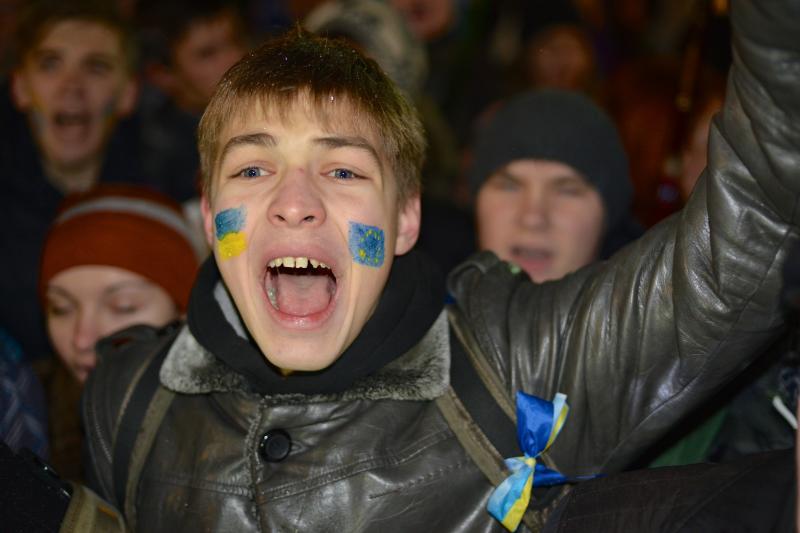Ukraine's Anarchist Past

Putin called the treaty a return of Crimea to its rightful owners, a righting of a “historical injustice.” It’s a wobbly assertion, but what is true is that the conflict in Ukraine has exhumed plenty of historical analysis and anecdote. The Crimean resort city of Yalta, where post-WWII peace talks took place, has been a favorite topic of discussion. Not to mention Khrushchev’s ill-advised gifting of Crimea to Ukraine in 1954, the historical origin of the entire conflict.
What hasn’t been discussed as thoroughly, however, is the fact that before the conflicts of the Soviet era, Ukraine’s aspirations were actually closely aligned with the Russian state. In fact, after World War I, part of Ukraine succeeded in becoming a Marxist’s dream.
It’s true. Karl Marx wrote of a day when communism would abolish the need for government, creating a free society of workers. As it turns out, Ukraine did just that. It was an anarchist utopia, and it was called the Free Territory, or, more fantastically, Makhnovia.
It began during the Bolshevik revolution of 1917, when the Russian tsar was overthrown and communism spread through the Eastern bloc. In Ukraine, Bolsheviks clashed with nationalists over the fate of the region. Enter Nestor Makhno, leader of the proletarian Makhnovists. Taking advantage of the chaos, Makhno led his motley group of laborers to take a piece of Southern Ukraine, converting it to the anarchist state of Makhnovia.
Makhnovia, which existed 1917-1921, was populated by “free worker-peasant soviets”, and organized around free exchange and free communities. Makhno advocated for the individual’s right to personal liberties, and, at least publically, outlawed police and militia.
At first, Russian Bolsheviks sought alliance with Makhno’s Free Territory. And for 4 years, the state worked. But eventually, the Bolsheviks overran the region, and forced Makhno to sign a peace treaty, ending his libertarian experiment.
Today, it seems Russia is intent on repeating history, quelling Ukrainian dreams and continuing their centuries-long push for a warm water port. Given the remarkable boldness of Putin’s aggression, it’s not far-fetched to think that the Russian land-grab will stretch beyond Crimea and into other parts of Southern Ukraine with large Russian populations.
Luckily, at the same time Ukraine’s fiery history makes it well-equipped to defend against the intimidation of a larger country. From independence, to Makhnovia, to revolution, to the recent overthrow, it’s a country that has earned a unique and intense relationship with autonomy and freedom.



